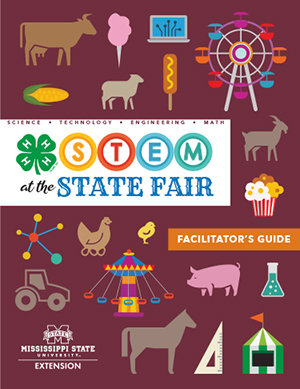Training familiarizes early childhood teachers with SmartJr
STARKVILLE, Miss. -- Mississippi 4-H is developing new programs incorporating ScratchJr, an introductory computer programming application for children ages 4-7, and an instructor with the research group that created the software recently visited Mississippi State University to train educators on its curriculum.
Madeline Nievera, an instructor with the DevTech Research Group at the Lynch School of Education and Human Development at Boston College, trained 4-H agents with the MSU Extension Service and early-childhood educators in Mississippi during the Coding as Another Language Professional Development Workshop Sept. 9-10.
A free programming language, ScratchJr was co-developed by professor and DevTech director Marina Bers through support from the Scratch Foundation and the National Science Foundation. It was released as a free smart device application in 2014 and had more than 45 million users as of 2023.
The SmartJr app uses block programming to control the actions and interactions of various animal characters in front of environmental settings the user may choose, such as a pasture, cityscape or beach. The original Scratch program was designed for an older age group, and ScratchJr differs in that the blocks do not have words, making it more accessible to younger children who are just starting to learn how to read.
Kim Thomas-Cain, outreach learning and engagement manager for the Scratch Educational Collaborative, said the technology was developed to prepare children to be fluent in digital literacy while introducing them to science, technology, engineering and math, or STEM, concepts.
“The curriculum and application serve as an age-appropriate introduction to the concepts that provide a foundation for computer science, including algorithms, design processes and control structures,” Thomas-Cain said. “We’re not so much trying to push young people to become able to code as adults as we are trying to show basic skills and concepts so they can engage with technology not just as consumers, but creators.”
The program is also used above its intended age group for English language learners or students with disability needs.
The Coding as Another Language for ScratchJr curriculum includes lessons that are “unplugged,” or taught without a smartphone or tablet, as well as some that use the application to create projects.
“This goes beyond kids getting a tablet and playing with an app,” Thomas-Cain said. “The real difference here is that they’re not consuming technology where the app is in the driver’s seat. With ScratchJr, the kids are in the driver’s seat. They are the maker, and that’s very different. It’s similar to them painting or writing a story or drawing something but using technology to create it.”
Mariah Morgan, interim director of the MSU Extension Center for 4-H Youth Development, said getting programs like ScratchJr in the hands of more of the state’s educators is necessary to help children here keep up with their peers around the world in their familiarity with STEM.
“Extension’s mission is to bring the best in research to the people of Mississippi,” Morgan said. “DevTech is an internationally known pioneer for children’s digital literacy. The training helps our agents and teachers give the youth in their community access to coding literacy and help them learn digital literacy for whatever jobs may be out there tomorrow. Our children need to have the same access to this literacy as other children throughout the world.”
